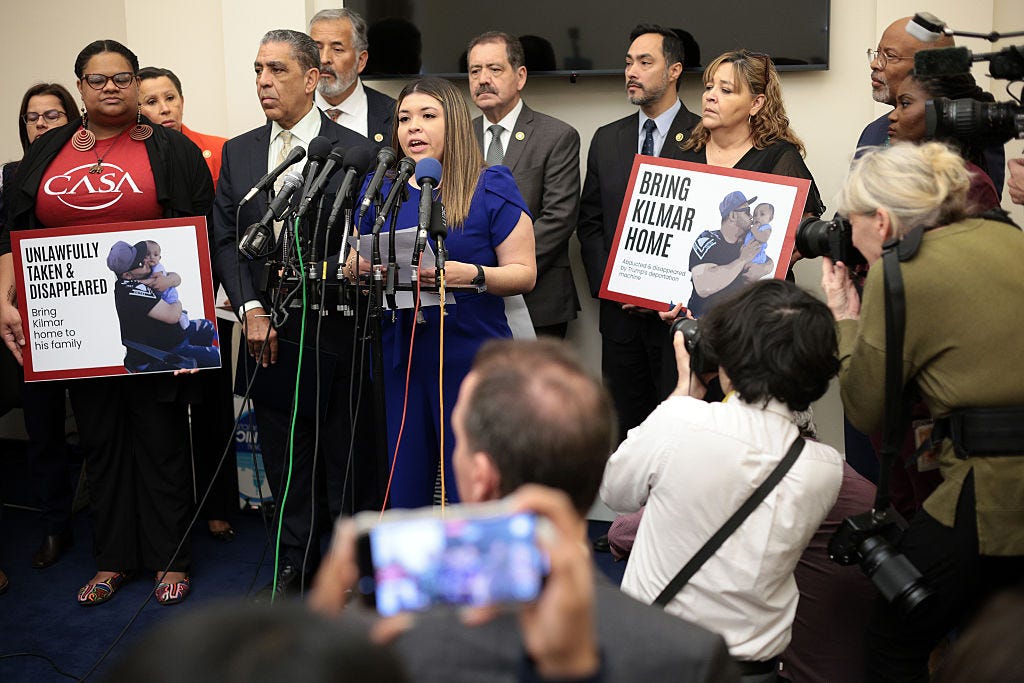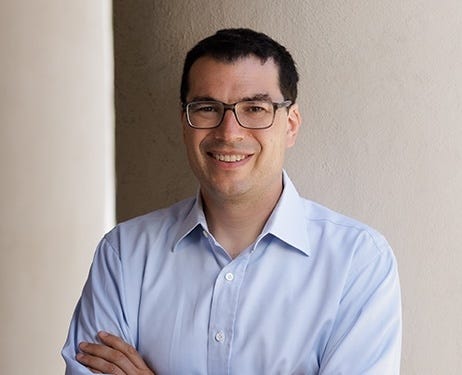Who belongs — and who decides?
Legal scholar Sam Erman on what's at stake in Donald Trump’s attack on citizenship
This morning, Senator Chris Van Hollen of Maryland is on his way to El Salvador to argue personally for the release of Kilmar Abrego Garcia, the Maryland resident wrongly kidnapped and now imprisoned without charge in that country’s CECOT prison.
It’s an unprecedented step for a U.S. Senator, but we’re in new territory. This comes after the Trump regime has now mischaractgerized and ignored orders by both the US Court of Appeals for the Fourth Circuit and the Supreme Court to return Abrego Garcia, lied repeatedly about their reasons for detaining him and the hundreds of other migrants similarly disappeared, and has even enlisted El Salvador president Nayib Bukele— the self-identified “world’s coolest dictator” — for a bit of theater of cruelty to drive the point home.
That constitutional crisis everyone’s been worrying about? It’s here.
Trump’s future plans, caught on a hot mic at the Bukele press event, promise to deepen the crisis. They involve extending the disappearances and transferring U.S. citizens — “homegrowns,” to Trump — to Salvadoran prisons. Illegal, un- and anti-constitutional, and contrary to the very notion of what America is and should be.
There’s a lot at stake here, not least of all the question as to whether the United States remains a democracy, but it all centers on what citizenship is, how it’s managed, and who does the managing.
To understand the background of Trump’s assault on citizenship, what it means for the rights of immigrants and American citizens, and its implications for the future, Thor Benson talked to immigration expert Sam Erman, a law professor at the University of Michigan and the author of Almost Citizens: Puerto Rico, the U.S. Constitution, and Empire.
By Thor Benson
How big a break from the past are the Trump immigration actions we’ve seen so far?
The part of immigration policy that I focus on is the question of who gets to be a citizen at birth. There’s been this view, since before the founding, that if you are born in the United States, and you were subject to following U.S. laws, you were a citizen. Before the Civil War, people thought that it was a matter of common law. After the Civil War, it was codified in the 14th Amendment.
It was also made statutory by Congress, which is the branch of government that has power over naturalization. What we’re seeing right now is a big change. It’s an attempt to overturn the settled, common law, constitutional, statutory meaning—and to do it by the branch that has the least say in the matter. By executive order. The Constitution sets the rules for this, and when it says there’s discretion to be had, that discretion is for Congress, not the president.
How has the U.S. defined citizenship over the years? What’s changed?







